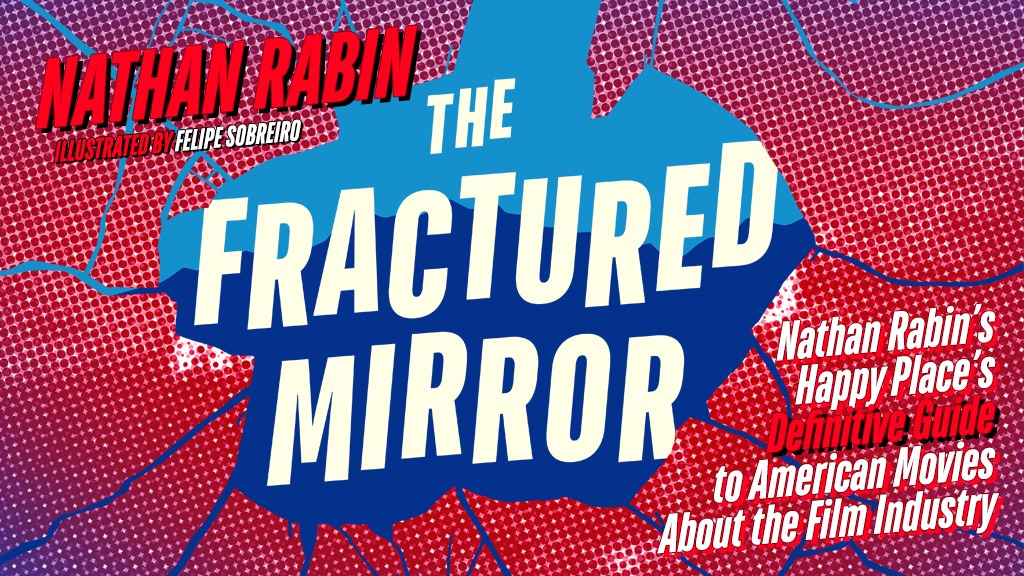The Fractured Mirror entry: Black Bear 2020
over 1 year ago
– Fri, Mar 31, 2023 at 02:23:09 PM
Black Bear (2020) FM
Lawrence Michael Levine’s moody 2020 drama Black Bear is grown-up mumblecore, with a bigger budget and a lusher, more cinematic visual aesthetic but a similar set of thematic obsessions. Like pretty much all examples of the scrappy, often annoying breed, Black Bear is about neurotic young artists who find it difficult, if not impossible, to separate their messy personal and professional lives.
Black Bear is split into two parts. In “The Bear in the Road”, the first half, enigmatic, mysterious actress turned director Allison (Aubrey Plaza) shows up at a lake house airbnb in the Adirondack Mountains and causes a rift between proprietors Gabe (Christopher Abbott) and his pregnant wife Blair (Sarah Gadon) with her flirtatious attitude towards the male half of the quarreling couple.
In "The Bear by the Boat House”, the section that follows, Gabe is now a director filming a film within a film with the same title as Black Bear and some of the same dialogue and action. Only this time Blair and Allison and actresses in the film-within-a-film and Gabe wants Allison to think that he’s cheating on her with Blair.
The darkly comic psychodrama that ensues suggests a less goofy and more dread-filled Baghead by way of Persona. Like the seminal mumblecore horror comedy Baghead, Black Bear functions best as an unusually pure vehicle for the idiosyncratic charms and incandescent presence of its leading lady.
Plaza’s stormy sensuality and sardonic humor carry Black Bear. She’s a dazzlingly contemporary spitfire with the retro glamour of a silent screen siren who is riveting as someone on both sides of infidelity. Plaza’s magnetic performance grounds Black Bear’s sinister game-playing and funhouse mirror take on the seedy psychological horrors of love-making and movie-making and the dangers of combining the two.
The Fractured Mirror entry: The Watermelon Woman (1996)
over 1 year ago
– Tue, Mar 21, 2023 at 08:56:28 AM
The Watermelon Woman (1996) FM
Groundbreaking films don’t get more modest than Cheryl Dunye’s seminal 1996 directorial debut The Watermelon Woman. The charming independent romantic comedy has the distinction of being the first film directed by an out black lesbian. Dunye’s acclaimed movie world comedy follows closely in the footsteps of similarly slight but important independent landmarks like Spike Lee’s She’s Gotta Have It, Robert Townsend’s Hollywood Shuffle and Rose Troche’s Go Fish, which is referenced within the film itself, in using a tiny budget to tell a deeply personal story about a demographic both under and misrepresented in Hollywood films.
The Watermelon Woman even casts Go Fish’s cowriter and star Guinevere Turner in the central role of Diana, a sexy video store customer from Chicago who falls in love with the film’s protagonist.
In addition to writing and directing, Cheryl Dunye stars as an ambitious young aspiring filmmaker named Cheryl Dunye who works in a video store with her best friend and foil Tamara (Valarie Walker) while directing a video project about a black film actress and singer from the 1930s sometimes credited merely as The Watermelon Woman.
Though the titular icon played roles that could be seen as demeaning and stereotypical our lovable heroine finds beauty, truth and even dignity within her onscreen existence all the same. She wants to know everything about this glamorous, elusive figure and is overjoyed to discover that she was a lesbian as well, and inhabited her world boldly and unapologetically over a half century earlier.
The Watermelon Woman is consequently an empathetic exploration of what it means to love something considered problematic and offensive with your whole body, mind and soul. Onscreen and off, Dunye is intent on carving out a space for black lesbians and lesbians of all colors to be themselves in film and popular culture, without hiding, shame or playing a rigged game. Dunye has created a loving, ultimately deeply moving tribute to black lesbian history without getting lost in nostalgia for an idealized past.
Like her inspirations, Dunye quietly but profoundly changed film just by being herself and telling her story, and the story of her community, simply, honestly and with great humor and insight.






